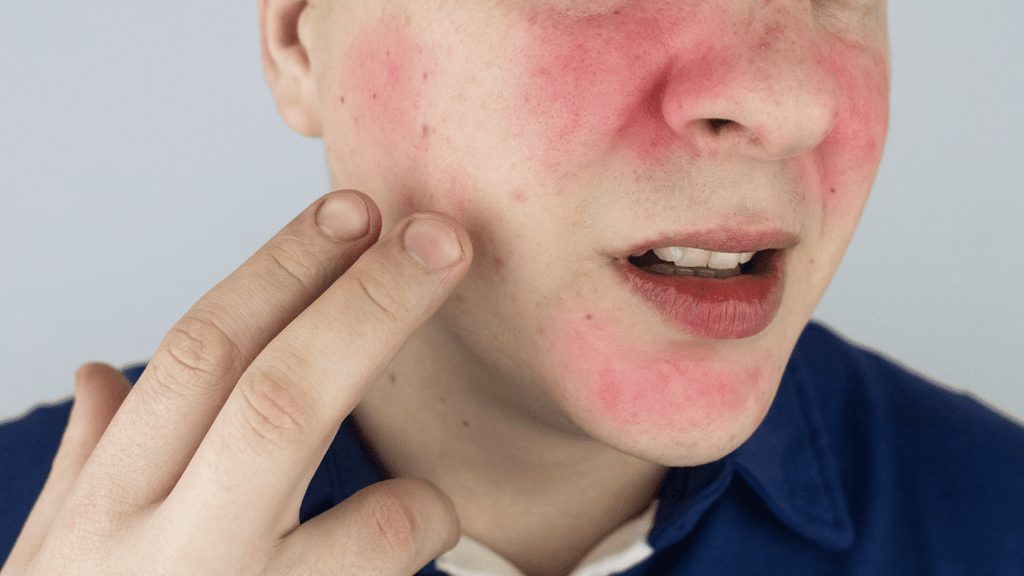Rosacea Treatment Effective and Gentle Solutions
Rosacea is a common yet often misunderstood skin condition that affects millions of people worldwide. Characterized by facial redness, visible blood vessels, and sometimes acne-like bumps, rosacea can significantly impact one's quality of life. Fortunately, various effective and gentle rosacea treatments are available that can help manage symptoms and improve skin appearance. This article explores some of the most promising treatments for rosacea, emphasizing approaches that are both effective and kind to the skin.
Understanding Rosacea
Rosacea Treatment in Dubai is a chronic inflammatory condition primarily affecting the face. It typically manifests as persistent redness on the cheeks, nose, chin, or forehead. In some cases, rosacea can also cause small, red, pus-filled bumps, and in more severe instances, it can lead to thickened skin. The exact cause of rosacea remains unclear, but factors such as genetics, environmental triggers, and an overactive immune response are believed to play a role. Recognizing the symptoms early and seeking appropriate treatment can help manage the condition effectively.

Effective Rosacea Treatments
Managing rosacea involves a multi-faceted approach tailored to individual needs. Here are some effective and gentle treatment options for rosacea:
Topical Medications
Topical treatments are often the first line of defense against rosacea. These medications are applied directly to the skin and work by reducing inflammation, redness, and breakouts. Commonly prescribed topical treatments include:
- Metronidazole: This antibiotic has anti-inflammatory properties that help reduce redness and swelling.
- Azelaic Acid: Known for its anti-inflammatory and antimicrobial effects, azelaic acid helps in reducing redness and preventing acne-like breakouts.
- Ivermectin: This treatment targets inflammatory lesions and can help improve overall skin appearance.
These topical treatments are usually well-tolerated and can be effective in managing mild to moderate rosacea.
Oral Medications
For more severe cases of rosacea, oral medications may be necessary. These treatments can help control inflammation and reduce the occurrence of flare-ups. Common oral medications for rosacea include:
- Antibiotics: Oral antibiotics, such as tetracycline, doxycycline, or minocycline, can help reduce inflammation and bacterial growth.
- Isotretinoin: In cases where other treatments have failed, isotretinoin may be prescribed to manage severe rosacea symptoms. It works by reducing the size of sebaceous glands and decreasing inflammation.
Oral medications are typically used in conjunction with topical treatments to provide comprehensive management of rosacea.
Gentle Skincare Routines
A gentle skincare routine is crucial for individuals with rosacea. Harsh products and aggressive treatments can exacerbate symptoms and irritate sensitive skin. Here are some tips for creating a rosacea-friendly skincare routine:
- Use Mild Cleansers: Opt for non-foaming, fragrance-free cleansers that are designed for sensitive skin. Avoid products with alcohol or strong preservatives.
- Moisturize Regularly: A good moisturizer helps to maintain the skin's barrier function and prevent dryness and irritation. Look for products containing soothing ingredients like ceramides and hyaluronic acid.
- Avoid Exfoliation: Exfoliating scrubs and chemical peels can irritate rosacea-prone skin. Instead, use gentle products that do not strip the skin of its natural oils.
- Apply Sunscreen: Sun exposure can trigger rosacea flare-ups. Use a broad-spectrum sunscreen with SPF 30 or higher daily to protect your skin from harmful UV rays.
Lifestyle and Dietary Adjustments
In addition to topical and oral treatments, lifestyle and dietary changes can play a significant role in managing rosacea. Identifying and avoiding triggers can help reduce flare-ups. Common rosacea triggers include:
- Spicy Foods: Spicy foods can cause facial flushing and exacerbate rosacea symptoms.
- Hot Beverages: Hot drinks, such as coffee and tea, may trigger redness and irritation.
- Alcohol: Alcohol, particularly red wine, is a known trigger for many individuals with rosacea.
Keeping a diary to track potential triggers and adjusting your diet accordingly can be an effective strategy for managing symptoms.
Advanced Treatment Options
For individuals with persistent or severe rosacea, advanced treatments may offer additional relief. These treatments are typically performed by dermatologists and include:
- Laser Therapy: Laser treatments can target visible blood vessels and reduce redness. Pulsed dye lasers and intense pulsed light (IPL) are commonly used for this purpose.
- Electrosurgery: This technique uses electrical currents to remove visible blood vessels and reduce redness.
- Photodynamic Therapy: This involves applying a photosensitizing agent to the skin and then exposing it to light to target and reduce rosacea lesions.
These advanced treatments can be effective for individuals who do not respond well to topical or oral medications alone.
Conclusion
Effective and gentle rosacea treatment involves a combination of appropriate medications, a careful skincare routine, lifestyle adjustments, and, in some cases, advanced therapies. By understanding the condition and exploring various treatment options, individuals with rosacea can manage their symptoms and improve their quality of life. Consulting with a dermatologist can help determine the best approach for your specific needs, ensuring that you find a treatment plan that works effectively and is kind to your skin.